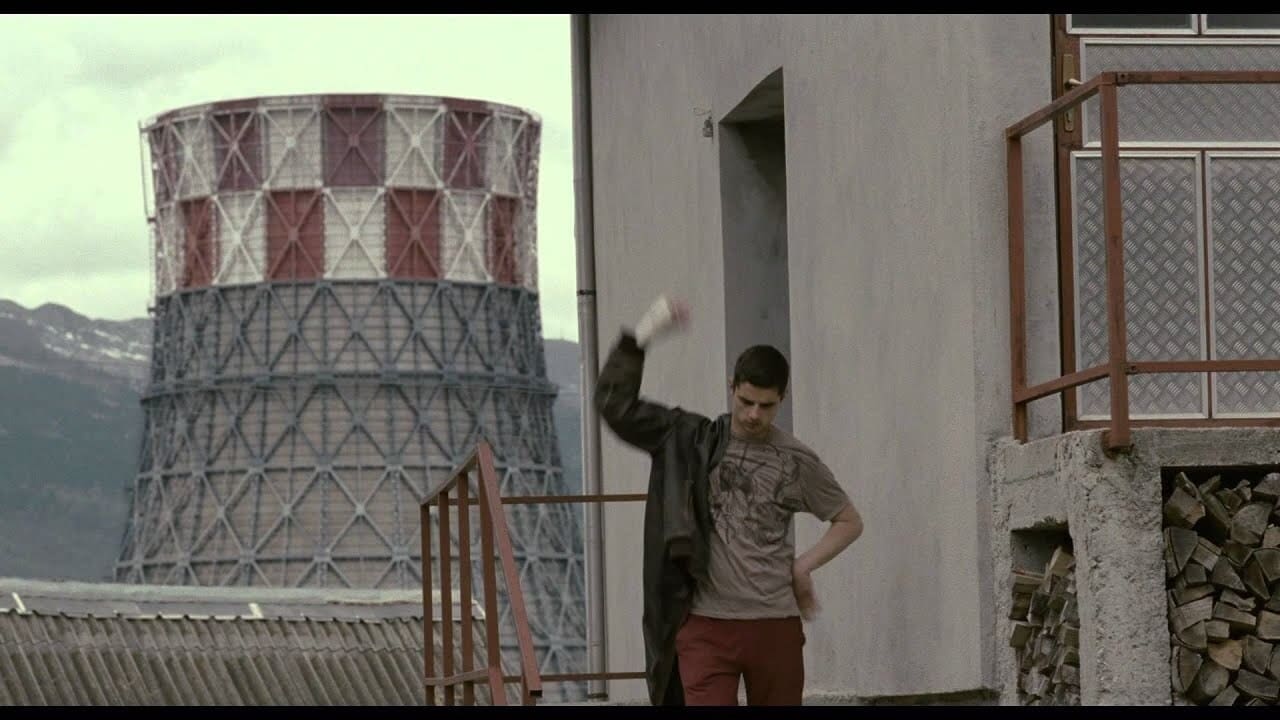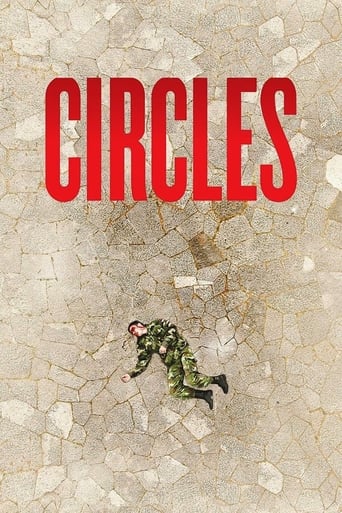CrawlerChunky
In truth, there is barely enough story here to make a film.
Rio Hayward
All of these films share one commonality, that being a kind of emotional center that humanizes a cast of monsters.
Nayan Gough
A great movie, one of the best of this year. There was a bit of confusion at one point in the plot, but nothing serious.
Lidia Draper
Great example of an old-fashioned, pure-at-heart escapist event movie that doesn't pretend to be anything that it's not and has boat loads of fun being its own ludicrous self.
Kirpianuscus
it is not only a good film. but support for reflection. about a war and about Balkans. about hate and about the small details. about feelings and about memories. about justice. and about the essential answers. the music, the image, the acting are only steps to a large circle of questions with not precise answers but with important role to define for yourself. it reminds few great European films but it remains different. for the salt taste, for the bitter atmosphere, for the traits of a lost world, for the beauty of few words and images, for the high talent of a remarkable team.a group portrait in the frame of ash circles. few amazing scenes. and the questions who does it a new form of documentary about an inside geography.Aleksander Bercek's silence. Nikola Rakocevic's character nuances.the admirable art of Srdan Glubovic. a film like a large question. and useful exercise of honesty for each viewer.
Alex Deleon
KROGOVI (Сircles): Serbian, 2013 Director Srdan Golubović A Serbian film with Slovenian, Croatian and German production inputs.After a fast start in Trebinje, Montenegro, 1993, introducing the principal characters of the drama, the time moves forward twelve years to Halle, Germany, and then to Belgrade, Serbia, and the pace slows down considerably with lots of real time sequences and lingering shots on pensive faces as the movie lapses into a study of the consequences of an act of collective brutality -- simply put, an outrageous war crime, during the brutal Jugoslavian civil war, a dozen years later. On various people who have tried to put it behind them. At the opening, Marko, a Serbian soldier off duty intervenes in the brutal beating of an innocent Moslem civilian being savaged by some of his soldier mates as the townspeople look on passively.This humane act will have very complex and puzzling repercussions which will not be resolved until the very end when we finally see what happened to Marko as a result of his attempt to save an innocent person from a pointless murder by his mates. This very tense drama that was roundly applauded by the Hungarian (Miskolc) audience and followed by a lengthy Q and A session with the director on stage after the screening. The civil war that tore Jugoslavia apart at the beginning of the nineties is now 20 years behind us but in the region itself the repercussions are still much like an open woundCircles, aka Krugovi, is based on the true story of a Serbian soldier who was killed defending a Muslim civilian from other soldiers while he was off-duty. Most of the story takes place a decade after the end of Serbian-Bosnian conflict but the effects of the war keep reaching out like ripples on a pond when a heavy stone is thrown in. Expanding concentric circles of guilt that keep disturbing the otherwise smooth surface of the water -- the 'krugovi' of the title -- that affect among others a Serbian family that has started a new life in neutral Germany, but the past comes back to haunt them. A surgeon who was only a medical student at the beginning is faced with the dilemma of whether to operate and save the life of a new patient, or not to operate and let him die when he recognizes the patient as the killer of his best friend back in Trebinje years before. But the former killer taunts him by reminding him that he was of the bystanders who did nothing to prevent the killing on that fatal day. All of this is cunningly directed like an intertwined nest of mystery stories embedded in each other until the surprise revelation at the end. While the story is specifically Yugoslavian the morality involved is universal and the filming is so masterful that this movie will hold the attention of audiences anywhere. Can't wait to see more work by Srdan Golubović.
strider1609
Summary says it all. This is one of best movies I have ever seen, and masterpiece of Serbian cinematography. It's really well done technically, and not revealing everything until very end, but giving hints all way along about why characters are acting the way they do. It slowly raises history, revealing one event that scarred all for life.It's based on true story of Serbian soldier in Bosnia during wartime, and it follows characters to present day, showing how incident in Bosnia haunts them. Movie is pretty hard to watch, because of very thought of situation. It gets emotional at some points, where characters finally leave history behind, or do something that honors the memory of incident. This movie also shows global atmosphere during Yugoslavian civil war, pretty much pointing out that ordinary people did not want to wage war. It has subtle cinematographic effects, revealing more than there is to plain sight.As a person who likes movies, I will leave criticism and reviews to people that are paid to do that. However I will recommend this movie as a must-see to everyone reading this.
maurice yacowar
In Circles, Serbian director Srdan Golubovic dramatizes the need for warring factions to move beyond their animosities. The film is framed by the start and the end of a scene in Bosnia, 1993, based on an actual event. The golden Serbian off-duty soldier Marko sees three colleagues brutalize a Muslim civilian, the tobacconist Haris. When Marko intervenes, Haris runs off but the soldiers turn on Marko and kill him. Marko's young doctor friend watches helpless, while other citizens look away.The bulk of the film shows the characters still dealing with that death in Serbia, 2008, their wounds having outlived the war. Marko's fiancée Nada drifted off after her loss, married a brute and is now trying to escape his menacing pursuit of their young son. Haris helps her find a job and flat, then pays for her son's passport to enable her escape to Bosnia, where her husband faces arrest. The husband gives Haris a second severe beating but refrains from killing him, his eyes tearing up when he realizes he has lost his son. Marko's aging father Ranko is still alienated from the widow of one of Marko's assailants. He refuses to employ their grown son on his project, to relocate an old stone church from the power plant to a country hilltop. The church is an emblem of taking the moral high road. At the young man's persistence the old man softens, gives in, comes to accept him, and as he speeds him to a hospital after an accident cradles his head and tells the driver the boy is his son. Haris phones Ranko on the anniversary date of Marko's death. Now he calls him after this second beating. Though living in Germany now, Haris repays his debt to Marko by attending to his survivors. Marko's doctor friend is now the only surgeon who can perform the operation that will save the life of Todor — the leader of Marco's assault — after a serious traffic accident. The man recognizes him and futilely tries to get a different surgeon. The doctor is at first unwilling to save his friend's killer's life, especially when the brute denies remorse and calls him a "pussy" for his moral considerations. Post-operation this brute too tears up in gratitude for having been saved. One recurring motif is the long shot of a long winding road, like the one down which Ranko drags the crippled worker. It's an emblem of the long route to redemption, through forgiveness.The title has two implications. At one point Ranko muses that a stone dropped in water sends out spreading circles, but a good man's deeds don't. In this film Marko's death ends up having positive effects on the others, on Haris immediately and on the others up to 12 years later. They manage to break the circle of violence and hatred begetting violence and hatred. For more see www.yacowar.blogspot.com.

